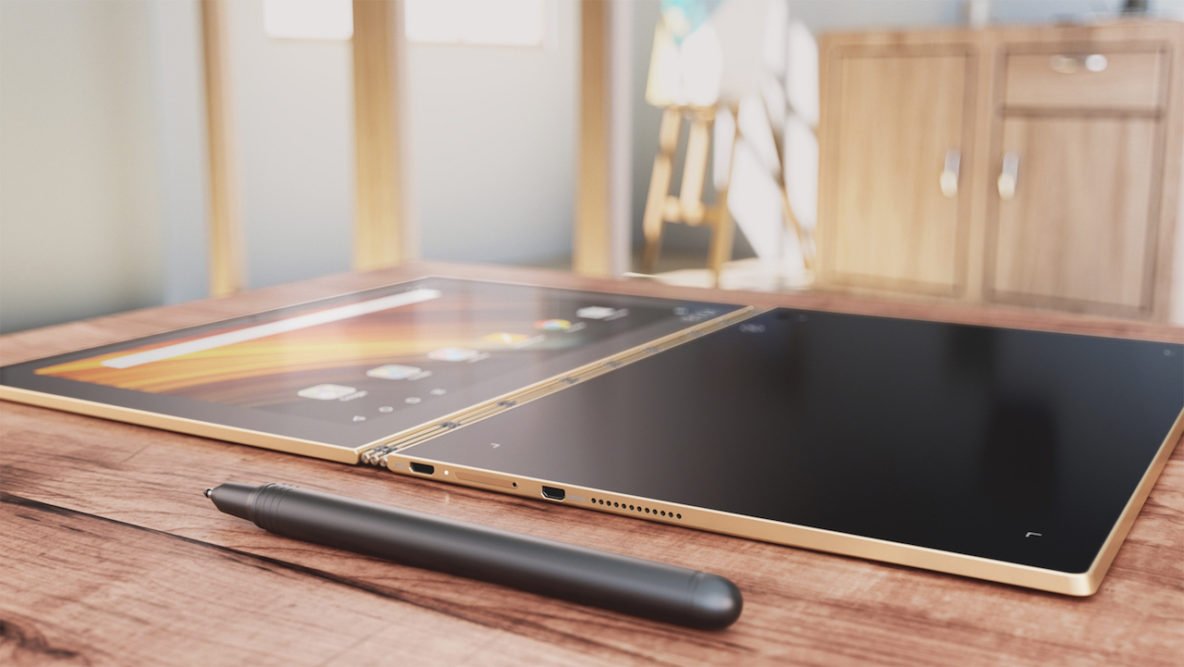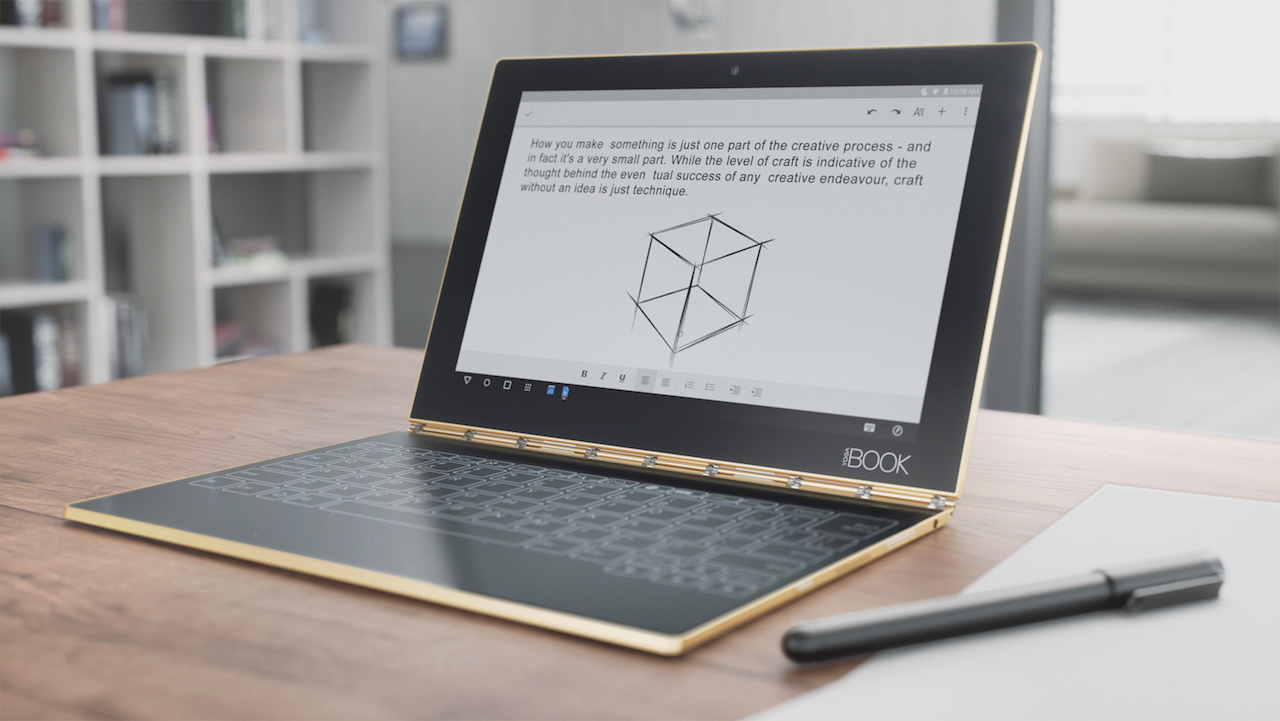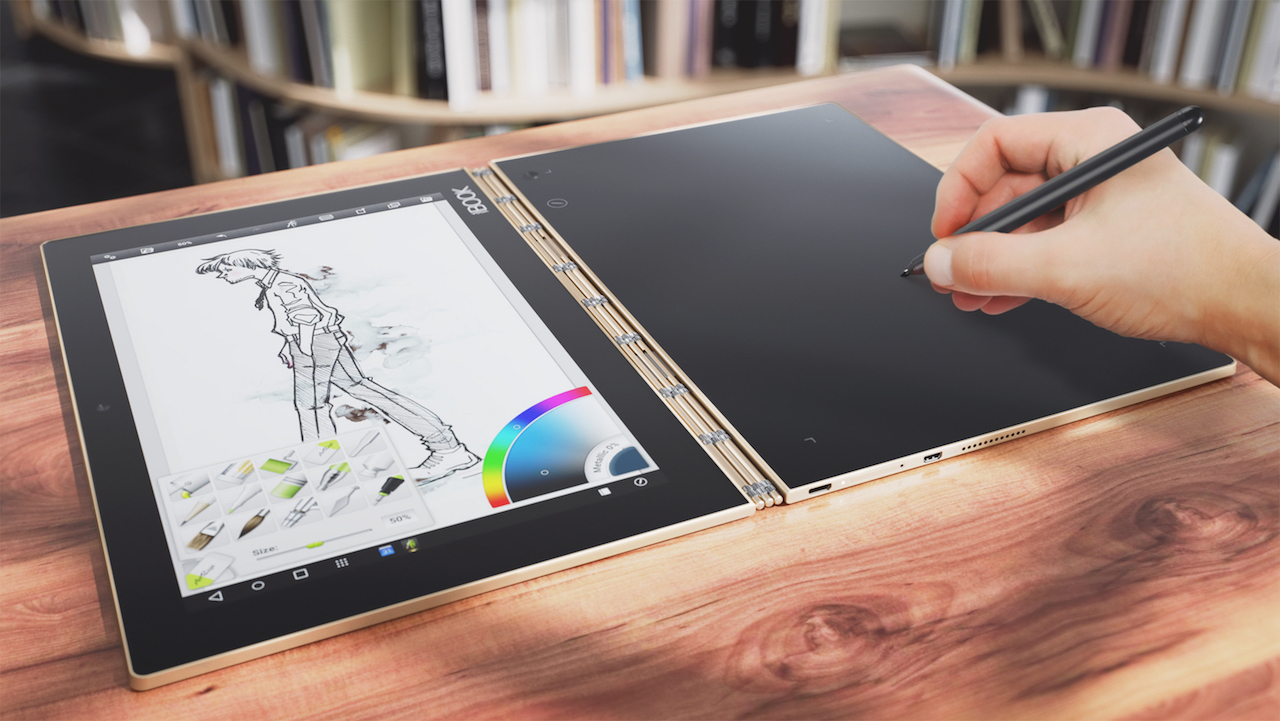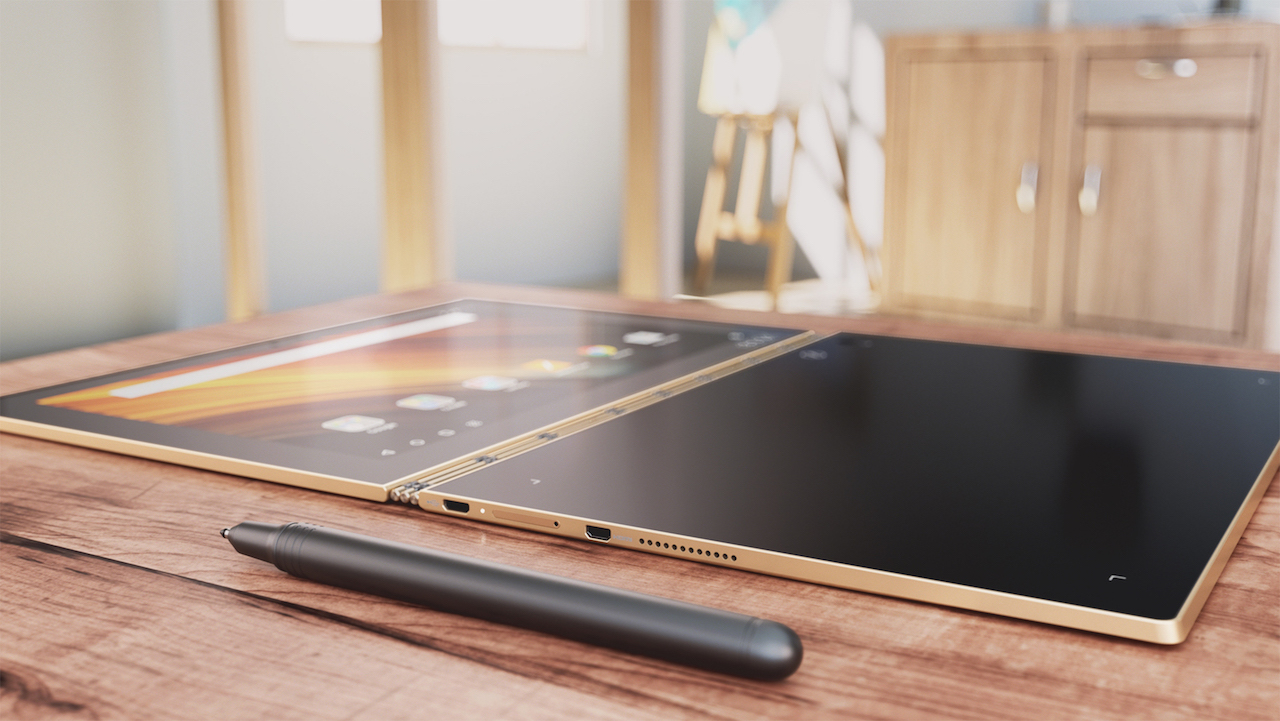Lenovo set out to make a computer that you can touch, fold, carry around with one hand, and write on. The result is the hybrid tablet you see before you, with a 10-inch touchscreen panel on one end and a virtual-keyboard-slash-writing surface on the other.
You can use the other half for typing as you would on a phone or tablet — the surface lights up to reveal a faint outline of the keyboard and trackpad that get better with use — though the experience may seem odd at first, perhaps even uncomfortable. Better still, you can use it for jotting notes or sketching using the included Wacom stylus, which can transform into a regular pen that uses ink.
Lenovo set out to make a computer that you can touch, fold, carry around with one hand, and write on. You can use the other half for typing as you would on a phone or tablet. Better still, you can use it for jotting notes or sketching using the included Wacom stylus, which can transform into a regular pen that uses ink.
Speaking of which, the Lenovo Yoga Book can automatically copy and digitize whatever you write or draw onto any pad of paper on the touch surface, even while the screen is off. There’s no need for special software or format conversion; when it works, it’s like magic.
You can’t pull the two touchscreens apart, unfortunately, but the bottom half flips all the way around on the hinge so the Book can be used as a tablet comfortably, especially since the machine is under 10mm thick when closed.
As for its tablet half, the Yoga Book runs Android Marshmallow with a desktop interface or Windows 10 on an Intel Atom processor with 4GB of RAM and up to 64GB of expandable memory. While it may not be powerful enough for heavy users and those who work using professional-grade design software, its hardware should be more than enough to support its intended use.
Lenovo told The Verge it took three years to create the Book, but it won’t be the last; future iterations are set to be built on the same tenets as the first design.
The Lenovo Yoga Book’s price starts at $499 or about P23,000 for the Android version, $549 or roughly P25,500 for the one that has Windows 10 on tap. It will be available in gold and gunmetal shades when it hits store shelves this October.
My additional take: I love to sketch when I can, and I personally can’t wait to have the Book in my hands. I’ll definitely get one when it becomes available. Till then, I’ll be waiting — and dreaming about what may very well be the ultimate iteration of the tablet form factor.
My partner Alora Uy Guerrero’s take: My iPad is gathering dust in the drawer. I haven’t turned it on in a long time because I don’t feel the need to use a tablet; if I want to do more than just basic computing tasks, I use my MacBook Pro, and if I want to browse the internet and check my messages and social-media accounts, I do it on my iPhone. Today, that’s changed. Guess that’s saying a lot.
Specs of the Lenovo Yoga Book (Price: $499 or about P23,000 – Android; $549 or roughly P25,500 – Windows)
- Wacom-powered stylus
- 10-inch IPS display (1,920 x 1,200 resolution)
- Intel Atom x5-Z8550 CPU
- 4GB RAM
- 64GB storage
- microSD card slot (up to 128GB)
- 8-megapixel rear camera
- 8,500mAh battery
- Android 6.0 Marshmallow or Windows 10
Share this Post








